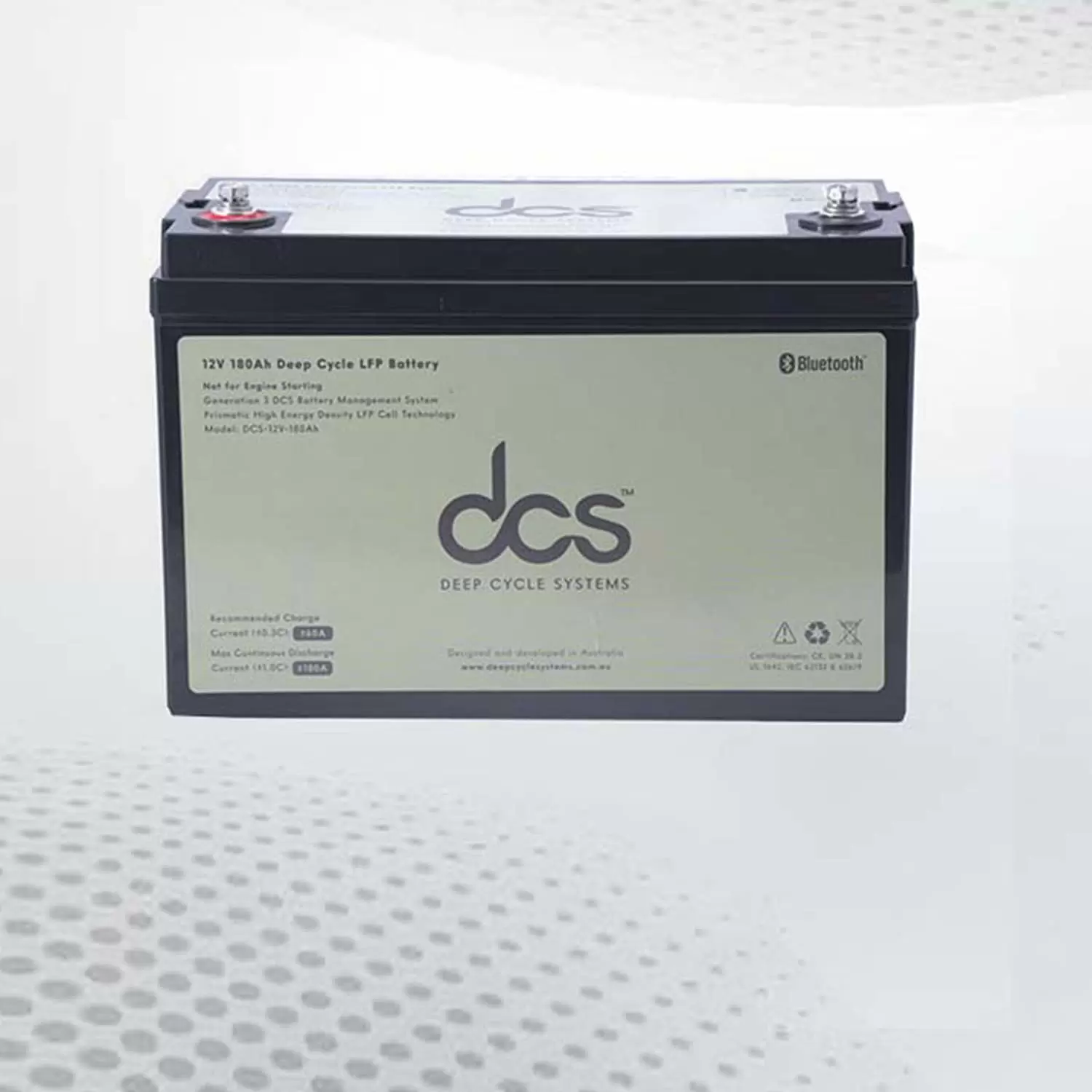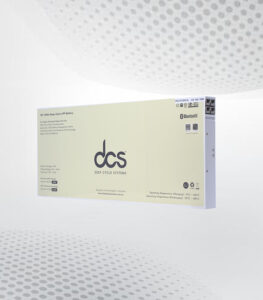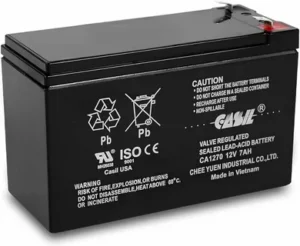As the world pivots towards renewable energy, lithium solar batteries have emerged as a game-changer in the quest for sustainable power solutions. These innovative energy storage systems are revolutionising how we harness and utilise solar energy. By efficiently storing large amounts of electricity, they empower homeowners and businesses alike to reduce reliance on traditional power sources.
Lithium Solar battery makes this possible and promises enhanced performance, longevity, and reliability. The surge in popularity is no accident; understanding what makes these batteries tick can help you unlock their full potential for your solar setup.
Advantages of Li Solar Battery
Li Solar Batteries stand out for their impressive energy density. Compared to other battery types, they can store more energy in a smaller space, making them ideal for residential and commercial use.
Another significant advantage is their longevity. Lithium-ion batteries typically last longer than traditional options, offering up to 10 years of reliable service or more with proper care.
Li Solar Batteries’ rapid charging capabilities also set them apart. Users can recharge these systems quickly, ensuring that they have access to power when they need it most.
Moreover, they exhibit low self-discharge rates. This means less energy loss over time, allowing your stored power to remain usable even during extended periods without sunlight. These batteries are lightweight and compact. Their design facilitates easier installation and transportation while maximising efficiency in various applications.
Different Types of Lithium Solar Batteries
Lithium solar batteries come in several types, each tailored for specific applications. One common type is the Lithium Iron Phosphate (LiFePO4) battery. Known for its thermal stability and long lifespan, it’s ideal for residential solar systems.
Next up are Lithium Nickel Manganese Cobalt (NMC) batteries. These versatile packs offer a balanced performance and are often found in electric vehicles and home energy storage solutions. Then there are Lithium Nickel Cobalt Aluminium Oxide (NCA) batteries. They provide high energy density and efficiency but usually come at a premium price.
We have Lithium Titanate (LTO) batteries. They boast rapid charging capabilities but have lower overall capacity than others. Each Li Solar Battery has unique features that cater to different needs and preferences, making it essential to choose wisely based on your requirements.
Comparison with Traditional Lead Acid Batteries
Several vital differences emerge when comparing Li Solar Batteries to traditional lead-acid batteries. First, lithium-ion options have a significantly higher energy density. This means they can store more power in a smaller, lighter package, making them particularly appealing to homeowners with limited space.
Another crucial aspect is lifespan. Li Solar Batteries typically offer a longer cycle life—often exceeding 10 years—while their lead-acid counterparts may only last three to five years under similar conditions.
Charging efficiency also sets them apart. Lithium-ion models charge faster and have lower self-discharge rates than lead-acid types, which translates into better overall performance.
Additionally, maintenance requirements differ significantly. Lead-acid batteries often demand regular checks for water levels and corrosion management, while lithium systems are virtually maintenance-free. These distinctions highlight why many users prefer lithium over traditional battery technologies for their solar energy needs.
Factors to Consider Before Choosing a Lithium Ion Battery Pack
Choosing the suitable lithium ion battery pack involves several important factors. First, consider your energy needs. Assess how much power you’ll require for optimal performance.
Next, consider the battery’s capacity and voltage. Higher-capacity batteries typically provide longer usage times but can be bulkier or heavier.
Weight and size matter as well. If portability is a priority, look for lightweight options that fit your space constraints without compromising efficiency. Check compatibility with existing systems, too. Ensure that your chosen Li Solar Battery integrates seamlessly with the solar panels and inverters you plan to use.
Examine warranty terms and manufacturer reputation. A solid warranty reflects confidence in product quality, while a reputable brand usually offers reliability and support when needed.
Installation and Maintenance Tips for Optimum Performance
When installing a Li Solar Battery, ensure it’s positioned in a cool, dry place. Excessive heat can affect its performance and lifespan. Keep the area well-ventilated to prevent overheating during operation. Do not block any vents or airflow paths around the battery unit.
Regularly inspect connections for corrosion or wear. Suppose you notice any buildup, clean terminals with a non-abrasive cloth. This simple maintenance step can enhance efficiency. Check your battery management system (BMS) periodically. It plays a crucial role in monitoring and optimising the performance of your lithium-ion battery pack.
Ensure firmware is updated when applicable; manufacturers often release updates that improve functionality and safety features. Maintain proper charging practices by following manufacturer guidelines on charge cycles and rates to significantly extend overall life expectancy.
Potential Future Developments in Li Solar Battery Technology
The future of Li Solar Battery technology is brimming with promise. Researchers are exploring new materials that can enhance energy density and lifespan. Innovations like solid-state batteries could revolutionise safety and performance.
Improvements in recycling methods are also on the horizon. These advancements aim to reduce waste while maximising resource recovery, making production more sustainable. Furthermore, integration with intelligent technologies is becoming a focal point. Imagine batteries that store energy and communicate with your home’s energy system for optimised usage.
As electric vehicles become mainstream, the demand for powerful lithium-ion battery packs will surge, too. This creates opportunities for further enhancements tailored specifically to transportation needs.
Continued investment in research will likely lead to breakthroughs that make these batteries even more efficient and cost-effective in years to come. The landscape is changing rapidly, fuelling excitement across industries reliant on renewable energy solutions.
Consider A Switch or Curious About This Cutting-edge Technology
As interest in renewable energy solutions grows, many are considering a switch to Li Solar Batteries. These advanced systems offer impressive efficiency and longevity compared to traditional options.
If you’re curious about this cutting-edge technology, now is the perfect time to explore its benefits further. A lithium-ion battery pack can significantly enhance your solar power experience. With advancements constantly emerging, staying informed will help you make smart decisions about your energy needs.
Whether you’re looking to upgrade an existing system or start fresh with solar power, understanding how Li Solar Batteries work gives you an advantage, embrace the future of clean energy and consider how these innovative solutions can fit into your lifestyle today.
Valuable Insights
Understanding Li Solar Batteries is crucial when exploring the world of energy storage. These advanced systems stand out due to their efficiency and longevity. With various options available, choosing the right type for your specific needs is essential.
Li Solar Batteries offer superior performance compared to traditional lead-acid counterparts. They charge faster and discharge power more effectively. This means you can rely on them during peak usage without worrying about depletion.
Before purchasing, consider essential factors such as capacity, lifespan, and compatibility with existing systems. Ensuring your lithium-ion battery pack fits seamlessly into your setup will enhance overall efficiency.
Installation plays a significant role in maximising performance. Proper positioning and connection can prevent issues while ensuring optimal energy capture from your solar panels. The future looks bright for lithium solar technology. Innovations are emerging consistently, promising even greater efficiencies and capabilities in energy storage solutions.
For those curious about switching or diving deeper into this cutting-edge technology, understanding these insights can help make informed decisions. Embracing Li Solar Batteries contributes to sustainability and enhances energy independence at home or in business settings.
As you navigate this dynamic landscape of renewable energy options, keep these valuable insights close; they might guide you toward an empowering choice that benefits you and the environment.
Environmental Impact
The environmental impact of Li Solar Batteries is a crucial aspect to consider as society moves toward sustainable energy solutions. These batteries store energy from renewable sources and contribute to reducing carbon footprints. Using solar power can decrease our reliance on fossil fuels, leading to cleaner air and less pollution.
However, addressing the lifecycle of lithium-ion battery production and disposal is essential. Mining for lithium can have detrimental effects on local ecosystems if not managed responsibly. Efforts are underway to improve sustainability in sourcing materials and developing more efficient recycling processes.
As technology advances, the focus will likely shift towards minimising these impacts while maximising efficiency and performance in Li Solar Batteries. Innovations could lead us toward a future where clean energy storage is both eco-friendly and highly effective.
When considering the switch or exploring this cutting-edge technology, staying informed about advancements prioritising environmental health alongside technological progress is beneficial. Embracing these developments allows consumers to make conscious choices that benefit their energy needs and the planet’s well-being.
Future Outlook
The future of Li Solar Batteries is promising and full of potential. As technology advances, we expect energy density, charging speeds, and overall efficiency improvements. Manufacturers are already experimenting with new materials and innovative designs to enhance the performance of these batteries further.
With a growing demand for renewable energy solutions, Li Solar Batteries will likely see increased adoption across various sectors. From residential installations to large-scale commercial applications, their role in sustainable energy systems is becoming more vital.
Government incentives and regulations are also influencing this shift towards cleaner technologies. Investments in research could lead to breakthroughs that make lithium-ion battery packs even more accessible and affordable for consumers.
As society moves towards electrification—whether through electric vehicles or off-grid living—the need for reliable power storage like Li Solar Batteries will only increase. Integrating innovative grid technologies may further optimise how these batteries function within larger energy ecosystems.
Keeping an eye on developments in battery recycling techniques will also be essential. Sustainable practices regarding the lifecycle management of Li Solar Batteries can help mitigate environmental concerns while maximising resource use.
Safety Considerations and Sustainability
Regarding safety considerations and sustainability, Li Solar Batteries stand out. These batteries have built-in protection mechanisms that prevent overheating, overcharging, and short-circuiting. This ensures not just the longevity of the battery but also user safety. However, like any technology, they must be handled with care.
Sustainability plays a crucial role in today’s energy landscape. Li Solar Batteries have a lower environmental footprint compared to traditional options. While mining for lithium does pose challenges, ongoing research aims to improve extraction processes and enhance recycling capabilities.
As renewable energy continues to grow, so do innovations in battery technologies that prioritise both safety and eco-friendliness. By investing in Li Solar Batteries now, you choose an efficient power source and contribute to a greener future.
Conclusion
lithium solar battery represents a significant advancement in energy storage technology. Its efficiency and longevity make it an attractive option for various applications. As the world shifts towards renewable energy, this battery plays a crucial role. They support everything from home solar systems to electric vehicles, enhancing our ability to harness clean power. The ongoing developments in lithium-ion battery technology promise even more significant performance improvements. As research continues, expectations are high for increased capacity and reduced costs.
FAQs
What is a lithium solar battery?
A lithium solar battery is a rechargeable energy storage system using lithium-ion technology. These batteries are commonly integrated with solar power systems, allowing for efficient storage and utilisation of renewable energy. Their lightweight nature and high energy density make them ideal for residential and commercial applications.
How do Li Solar Batteries compare to lead-acid batteries?
Li Solar Batteries typically offer several advantages over traditional lead-acid batteries. They have higher efficiency rates, longer lifespans, faster charging times, and lower maintenance requirements. While lead-acid batteries may be more affordable upfront, the long-term costs associated with maintenance and replacement often make lithium options a better investment.
What factors should I consider when choosing a lithium-ion battery pack?
When selecting a lithium-ion battery pack for your needs, consider capacity (measured in amp-hours), discharge rate, cycle life, warranty options, brand reputation, and compatibility with your existing equipment or systems. Matching the battery’s specifications with your intended use is essential to ensure optimal performance and longevity.




